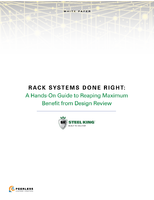ATA Chairman asks Congress to move forward with energy policy.
Press Release Summary:
Douglas M. Steenland, Northwest Airlines President and CEO and ATA board chairman, called on Congress to address America's energy future and to take action to pass balanced energy policy legislation in bipartisan fashion. Steenland told committee that a strong airline industry is essential to a strong economy and that high crude-oil prices challenge industry's ability to meet needs of passengers and communities across the country.
Original Press Release:
Air Transport Association Chairman Calls on Congress to Swiftly Move Forward with Bipartisan and Balanced Energy Policy
Says Strong Aviation Industry Essential to a Strong U.S. Economy
WASHINGTON, Sept. 12, 2008 - Douglas M. Steenland, Northwest Airlines president and chief executive officer and Air Transport Association (ATA) board chairman, today called on Congress to address America's energy future and to take action to pass balanced energy policy legislation in a bipartisan fashion.
Steenland, who participated in a Senate Energy Committee summit, told the committee that a strong airline industry is essential to a strong economy and that high crude-oil prices challenge the industry's ability to meet the needs of passengers and communities across the country. "In today's environment, airlines are pure price takers. We have no choice but to purchase fuel, irrespective of the price," said Steenland, pointing out that fuel now represents 40 to 50 percent of U.S. airline total operating costs. "Unpredictable record-high oil prices have led to price increases and smaller operations," he said.
Oil soared from $67 per barrel in June 2007 to an intra-day high of $147 per barrel on July 11, 2008, a 119 percent increase. "If sustained over an entire year, that $80 difference would add $34 billion to the industry's fuel bill," said Steenland, adding that a balanced, pragmatic and bipartisan energy policy would help stabilize exorbitant fuel prices. "America's energy policy must include expanding domestic supplies through environmentally responsible drilling and production, as well as nuclear and alternative energy sources; promoting conservation; and curbing excessive oil speculation," said Steenland.
Steenland said that in 2008, the United States will import nearly 5.5 billion barrels of oil at an estimated cost of more than $600 billion. "Legislation to increase access to our natural resources - including lifting the ban on outer continental shelf drilling - will help reduce oil prices and stimulate the U.S. economy," he said.
Complementing the need to address the critical supply issues, Steenland said that Congress must do something about the excessive speculation in the energy markets, adding that, in the opinions of many, high-volume paper futures investments and contracts helped the recent accelerated run-up in oil prices. "Changes in supply and demand fundamentals and the devaluation of the dollar cannot alone account for the massive oil spike," said Steenland. "We need transparent, well regulated markets to prevent excessive speculation from returning to the markets, ensuring that regulators can detect and address concerns that lead to the surge in prices; and to reduce volatility caused by the big swings in unchecked speculative activity."
In closing, Steenland said that while the airlines welcome the recent drop in the price of oil, those prices remain volatile. "This country must have a balanced energy policy and we strongly urge Congress to pass comprehensive bipartisan legislation before recessing at the end of September," said Steenland.
ATA airline members and their affiliates transport more than 90 percent of all U.S. airline passenger and cargo traffic. For additional information about the industry, visit www.airlines.org.
CONTACT:
Elizabeth Merida
202-626-4205
Victoria Day
202-626-4141




